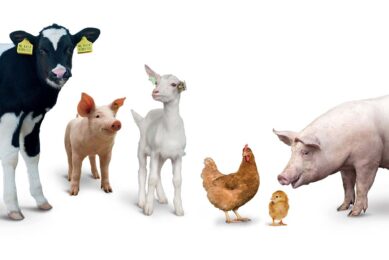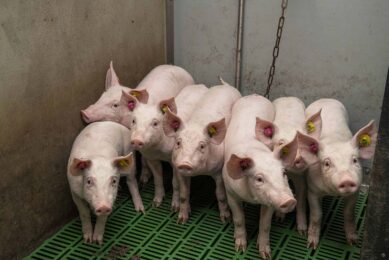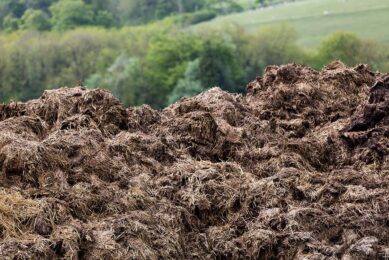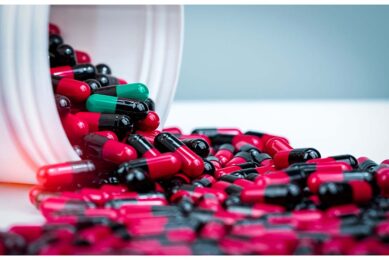Lactoferrin: A challenger to replace antibiotic use
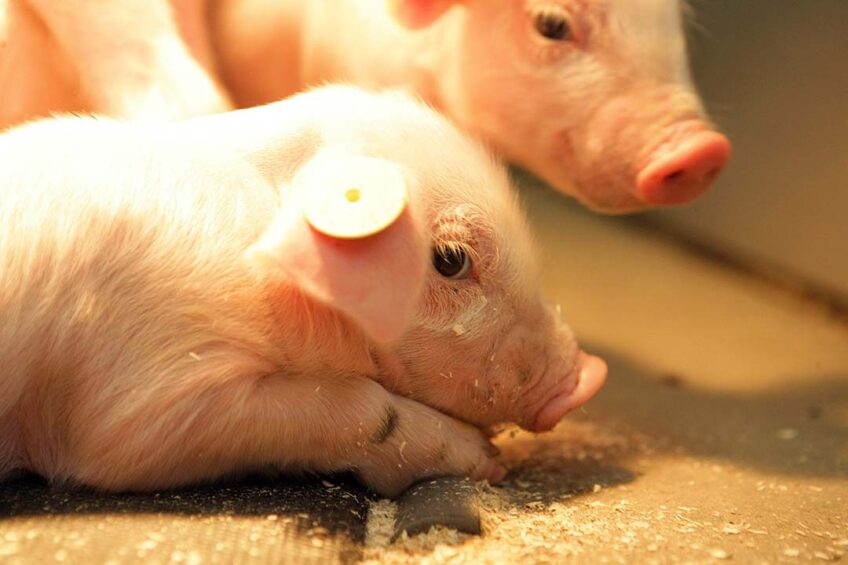
Research continues the search for alternatives to antibiotics to maintain the health of piglets in the critical weaning period and protect public health. In this recent study, lactoferrin, an iron-binding glycoprotein derived from cow milk has proven equally effective in imparting health and performance to weaning piglets compared to the antibiotics flavomycin and aureomycin.
ANTIBIOTIC REDUCTION SPECIAL 2023 – read all articles
The weaning period is a crucial stage in pig growth and production, usually accompanied by severe diarrhoea and intestinal infections due to stress in response to sudden changes in feed and environment. However, the essential reason is mainly attributed to piglets’ poorly developed intestinal and immune systems. The use of antibiotics in feed has caused a growing number of antimicrobial-resistant agents, posing a threat to human health. Research work keeps focusing on unveiling alternatives to antibiotics as these will maintain the health of piglets in the critical weaning period and protect public health.
Lactoferrin has a variety of biological and beneficial functions, including iron-transferring, anti-inflammatory, antibacterial, antiviral, and anticancer properties. In the current study, researchers elaborate on how dietary supplementation of lactoferrin enhances growth performance and reduces the diarrhoea rate in weaning piglets by improving intestinal immunity, morphology, and barrier function while balancing intestinal microbiota by stimulating the growth of probiotic microbes to inhibit the growth of pathogens.
Study setup
In this study, weaning piglets were randomly allocated to 4 groups as follows:
- Negative control group (Control): basic diet, no additive
- Positive control group (Antibiotics): basic diet + 20 mg/kg flavomycin + 100 mg/kg aureomycin
- Low-level lactoferrin (BLF-Low): basic diet + 1 g/kg lactoferrin
- High-level lactoferrin (BLF-High): basic diet + 3 g/kg lactoferrin
The trial lasted for 14 days.
Growth performance and diarrhoea
The supplementation of lactoferrin and antibiotics both significantly decreased the diarrhoea rate (Table 1) in weaning piglets. The result indicated that the intervention of lactoferrin reduces diarrhoea incidents in weaning piglets in a dose-dependent manner. On the growth performance of weaning piglets, results showed the highest weight gain and feed intake in the group supplemented with high-level lactoferrin, followed by the antibiotics group with the unsupplemented group (Control) showing the lowest figures. On the other hand, the antibiotics group and the BLF-High group had the lowest feed conversion ratio values compared to the control group and the BLF-Low group. The improvements in growth and a reduction in diarrhoea were attributed to the observed improvements in immunity and intestinal integrity.
Improved immunity and antioxidant activities
To verify the effect of lactoferrin on adaptive immunity, plasma immunoglobins (IgG, IgA, and IgM) were measured, and the results showed supplementation with lactoferrin significantly increases the concentration of IgG, IgA, and IgM. Previous research has demonstrated that lactoferrin not only affects the proliferation of immune cells but also influences their differentiation, which was further confirmed by a significant increase in the T-lymphocyte transformation rate in this study (Table 2).
At the same time, the addition of lactoferrin enhanced the antioxidant capacity of the body, as evidenced by the significant increase in antioxidant enzymes glutathione peroxidase and superoxide dismutase, and the significant decrease in malondialdehyde (MDA) content. In line with a similar study, the changes in antioxidant enzyme activity were attributed to the activation of the Nrf2/HO-1 signalling pathway which regulates the expression of numerous cytoprotective genes including antioxidant genes.
Intestinal integrity
Improving intestinal morphology is an important way to improve the growth performance and health of weaning piglets. In this study, the results showed that supplementation with different doses of lactoferrin significantly increases villus height and the ratio of villus height to crypt depth, thereby improving intestinal morphology. On the other hand, proper epithelial function mainly depends on tight junction proteins, which play a crucial role in maintaining structural intestinal integrity and maintaining a barrier against noxious molecules. To study the effect of lactoferrin on the expression of tight junction proteins, the mRNA expression of tight junction proteins in the ileum of each animal was determined, and the results showed significant increases in the mRNA expression of claudin-1, occludin and ZO-1 tight junction proteins.
Modulation of microbiota
Studies show the disruption of intestinal microflora in piglets during the weaning transition is due to the reduction of intestinal flora diversity that allows the sugars in the protective layer of intestinal mucus to be used by pathogens, further causing the proliferation of pathogens, and inducing intestinal inflammation. It can be said that intestinal health during the weaning period is maintained by a dynamic balance of intestinal flora, intestinal barrier, and immune regulation. In the current study, supplementation of lactoferrin increased the abundance of beneficial bacteria Lactobacillus and Bifidobacterium and decreased the abundance of E. coli in the caecum. The effect of lactoferrin on E. coil was attributed to its direct antibacterial effect and degradation of the bacteria’s lipopolysaccharide part as observed in other studies.
The cost may be prohibitive
It was concluded lactoferrin improves the growth performance of weaning piglets and reduces diarrhoea rates by improving immunity, intestinal morphology and barrier function and balancing the intestinal microbiota. “However, commercial lactoferrin as a feed additive still has a long way to go due to its high cost. More new interests should be focused on constructing a stable supply chain of lactoferrin products with easy preparation and high quality that maintains and improves human and animal health”, researchers remarked.
Article is based on research carried out by Xuanxuan Ma, Ya Hao, Ruoyu Mao, Na Yang, Xueling Zheng, Bing Li, Zhenlong Wang, Qingjuan Zhang, Da Teng and Jianhua Wang. 2023. Effects of dietary supplementation of bovine lactoferrin on growth performance, immune function, and intestinal health in weaning piglets.



